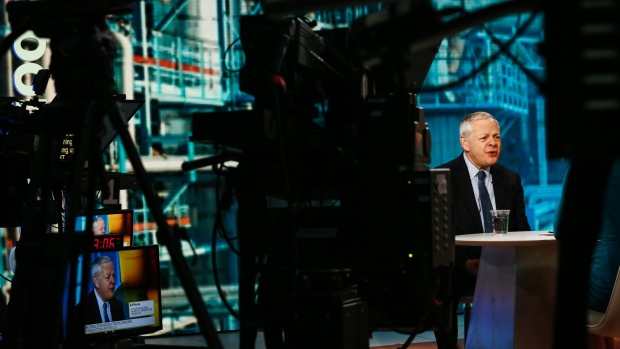
What if the oil market bulls are wrong and this lonely bear is right?
BNN Bloomberg
The oil market feels like a runaway train speeding toward US$100 a barrel.
The oil market feels like a runaway train speeding toward US$100 a barrel. Ask oil traders in Geneva, Singapore, London and Houston, and you hear the same thing: “Buy, buy, buy.” I canvassed the market over the last few days, and there are virtually no bears left. It’s a one-way street bet: long. Jeffrey Currie, a commodity strategist at Goldman Sachs Group Inc., personifies the bullish trend: “We’re out of everything, I don’t care if it’s oil, gas, coal, copper, aluminum, you name it, we’re out of it.”
The argument, as described by Currie, is a powerful one. It’s one I’ve subscribed to for several months, particularly in oil, gas and electricity. In oil, OPEC+ is behind the curve, adding too few barrels too slowly, in the process letting inventories decline to perilously low levels. Meanwhile, investors have accumulated huge bets above US$100, US$125 and even US$150 a barrel that could act as magnets for prices.
Yet, when everyone is bullish, I get twitchy. I imagine someone, somewhere, quietly selling — and that contrarian strategy proving to be prescient in some dramatic way. Call it the oil version of “The Big Short,” the book and the movie about the 2008 financial crisis.
I know one such contrarian. He has yet to be proven right, of course; his arguments are still unconvincing. But listening to lonely bears is important, if only because you need a sparring partner to challenge your assumptions.
The bear’s name is Ed Morse, the head of commodity analysis at Citigroup Inc. Last week, he stuck his head above the parapet, telling clients to sell oil. He avoided the front of the oil price curve, however, and instead recommended shorting the Brent December 2022 contract, which was trading at the time at US$82.39 a barrel. A few days on, the trade is well under water.
For now, Morse is unfazed by the losses on his recommendation. At age 80, he says solving the “oil puzzle” is what motivates him to continue working on Wall Street. He’s seen it all: he was a senior U.S. energy diplomat during the 1970s oil crisis, and was a banker in the 2000s during the commodity super-cycle. He knows that what goes up comes down — often quick and hard.
